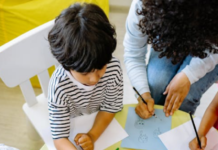Inclusive education is a philosophy that aims to provide all students, regardless of their abilities or disabilities, with equitable opportunities to learn and thrive in a mainstream educational environment. Promoting inclusive education involves implementing strategies that support students with special educational needs (SEN) to ensure they receive a quality education alongside their peers. Here are key strategies for promoting inclusive education and supporting students with special educational needs.
Creating an Inclusive Learning Environment
An inclusive learning environment is one that accommodates the diverse needs of all students, fosters a sense of belonging, and provides the necessary support for students with SEN to succeed.
- Differentiated Instruction:Differentiated instruction involves tailoring teaching methods, materials, and assessments to meet the diverse needs of students. Teachers can modify the content, process, product, and learning environment based on students’ readiness levels, interests, and learning profiles. For example, offering multiple ways to demonstrate understanding—such as written assignments, oral presentations, or creative projects—allows students to showcase their strengths. Providing choice in assignments and using flexible grouping can also help meet the varied needs of students with SEN.
- Universal Design for Learning (UDL):UDL is an educational framework that aims to make learning accessible to all students by providing multiple means of engagement, representation, and expression. This approach encourages the use of varied teaching methods, such as visual aids, hands-on activities, and technology, to cater to different learning styles. For instance, presenting information through videos, text, and audio can help students with different sensory preferences. Allowing students to express their understanding through different formats, such as written reports, digital presentations, or artistic creations, ensures that all students can participate meaningfully.
Providing Targeted Support and Resources
Supporting students with SEN requires the provision of targeted support and resources that address their specific needs and help them overcome barriers to learning.
- Individualized Education Plans (IEPs):IEPs are customized plans developed for students with SEN that outline their specific educational goals, the support and services they require, and the methods for evaluating their progress. These plans are created collaboratively by teachers, special education professionals, parents, and sometimes the students themselves. IEPs ensure that the educational experience is tailored to the unique needs of each student, providing them with the necessary accommodations and modifications. For example, a student with a learning disability might receive additional time on tests, while a student with physical disabilities might require assistive technology or modified classroom layouts.
- Access to Specialist Support:Collaboration with special education professionals, such as speech and language therapists, occupational therapists, and educational psychologists, is crucial for providing comprehensive support to students with SEN. These specialists can conduct assessments, develop intervention strategies, and work directly with students to address specific challenges. Regular consultation between classroom teachers and specialists ensures that students receive consistent and coordinated support. Additionally, providing professional development opportunities for teachers on topics related to special education can enhance their ability to meet the needs of students with SEN.
Fostering a Supportive and Inclusive School Culture
A supportive and inclusive school culture is essential for the successful implementation of inclusive education. This involves promoting positive attitudes, building strong relationships, and ensuring that all students feel valued and respected.
- Promoting Awareness and Understanding:Educating all students and staff about the importance of inclusion and the diverse needs of students with SEN is key to fostering a supportive school culture. Activities such as awareness campaigns, workshops, and discussions can help dispel myths and reduce stigma associated with disabilities. Encouraging empathy and understanding among students can lead to a more accepting and supportive peer environment. Inclusive practices, such as buddy systems and peer mentoring, can also promote social integration and provide additional support for students with SEN.
- Building Collaborative Partnerships:Collaboration between schools, families, and the wider community is vital for promoting inclusive education. Engaging parents in the educational process through regular communication, involvement in decision-making, and participation in school activities can enhance the support network for students with SEN. Community partnerships with local organizations, businesses, and volunteers can provide additional resources and opportunities for students. For example, partnerships with local businesses can create work experience opportunities for students with SEN, while collaborations with community organizations can offer extracurricular activities that promote social skills and inclusion.
In conclusion, promoting inclusive education and supporting students with special educational needs requires a multifaceted approach that encompasses creating an inclusive learning environment, providing targeted support and resources, and fostering a supportive and inclusive school culture. By implementing these strategies, educators can ensure that all students, regardless of their abilities, have the opportunity to learn, grow, and succeed in a mainstream educational setting.


























